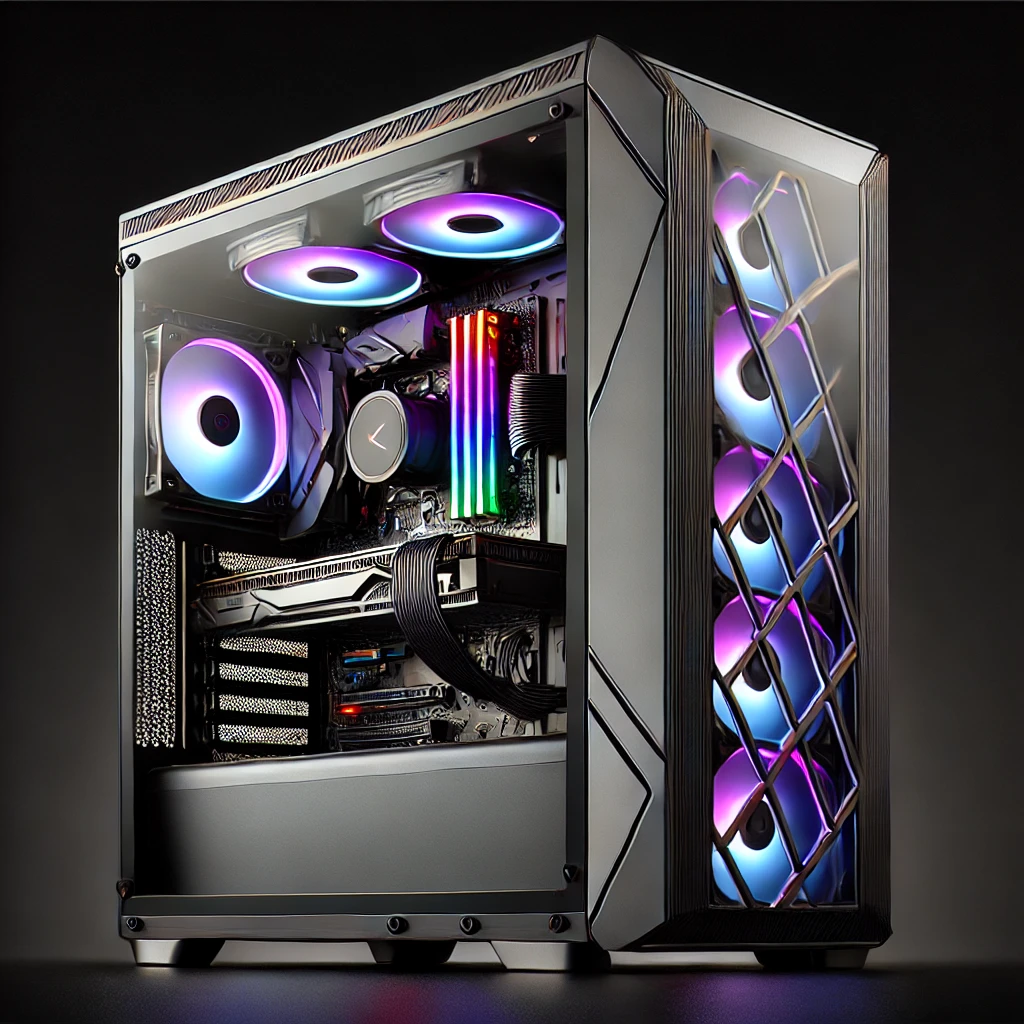Your cart is currently empty!
Hey, fellow tech enthusiasts and gamers! 🎮 If you’re thinking about building a custom gaming computer, you’ve probably heard the term “footprint” thrown around. But what does it mean, and why should you care? In this blog post, we’ll break down the concept of a gaming PC’s footprint and explore why it’s an important consideration for your next build.
What is a PC Footprint?
The “footprint” of a computer refers to the amount of physical space the system occupies. This includes not just the size of the case but also the space needed for ventilation, accessories, and even your gaming setup like monitors, speakers, and peripherals. In essence, it’s the total area that your gaming rig will take up on your desk or in your gaming room.
Factors Affecting the Footprint
- Case Size: One of the most significant factors is the size of the PC case itself. Cases come in various sizes, including full-tower, mid-tower, and mini-tower. The size you choose depends on your hardware needs and available space.
- Cooling Solutions: Advanced cooling systems like custom water cooling setups or large air coolers can add to the overall size of your build. These are essential for keeping high-performance components cool but can require additional room.
- Cable Management: Good cable management can reduce clutter, but it also needs to be considered when planning your build. Properly routing and hiding cables can take up additional space inside the case.
- Additional Hardware: If you’re planning to add multiple GPUs, extra hard drives, or additional peripherals like external sound cards, these components will require more room and potentially increase your PC’s footprint.
- Desk and Surrounding Area: Don’t forget about the space around your PC. Your desk needs to accommodate not just the PC but also your monitor(s), keyboard, mouse, and other gaming accessories.
Why Does Footprint Matter?
- Space Optimization: Knowing your PC’s footprint helps you plan your gaming setup more efficiently. This is crucial if you’re working with limited space, like a small room or a shared area.
- Cooling and Ventilation: A well-ventilated area is key to maintaining optimal temperatures and ensuring your components’ longevity. A larger footprint might be necessary to provide adequate airflow around your setup.
- Aesthetic Appeal: Let’s face it, part of the fun of building a custom gaming PC is showing it off. A well-thought-out footprint can help you create a cleaner, more organized look, enhancing the overall aesthetic appeal of your setup.
- Upgradability: A larger footprint often means more room for future upgrades. If you plan to add more hardware down the line, make sure your setup has the space to accommodate it.
Planning Your Custom Build
At Lithgeek, we specialize in creating custom gaming PCs that are tailored to your specific needs and space requirements. Whether you’re in Lithgow, Katoomba, Leura, or the Blue Mountains, our team can help you design a build that fits perfectly into your available space while delivering top-notch performance.
When planning your build, consider not just the components but also where you’ll place your PC and how it will fit into your overall gaming setup. If space is a constraint, opting for a compact build with efficient cooling solutions can be a great choice.
Featured Games and Footprint Considerations
For gamers looking to play titles like Cyberpunk 2077, Assassin’s Creed Valhalla, or Call of Duty: Modern Warfare, a high-performance setup with adequate cooling and space for future upgrades is essential. These games demand powerful hardware, which can influence the footprint of your setup.
- Cyberpunk 2077 – System Requirements
- Assassin’s Creed Valhalla – System Requirements
- Call of Duty: Modern Warfare – System Requirements
Next Steps
Ready to start your custom build journey? Visit us at 53 Main Street, Lithgow, or check out our online store to explore our range of components and services. Our experts are here to help you design a gaming PC that not only meets your performance needs but also fits perfectly into your space.
Discover more from LithGeek Custom Gaming Computers
Subscribe to get the latest posts sent to your email.
Posted
in
by
Tags:


